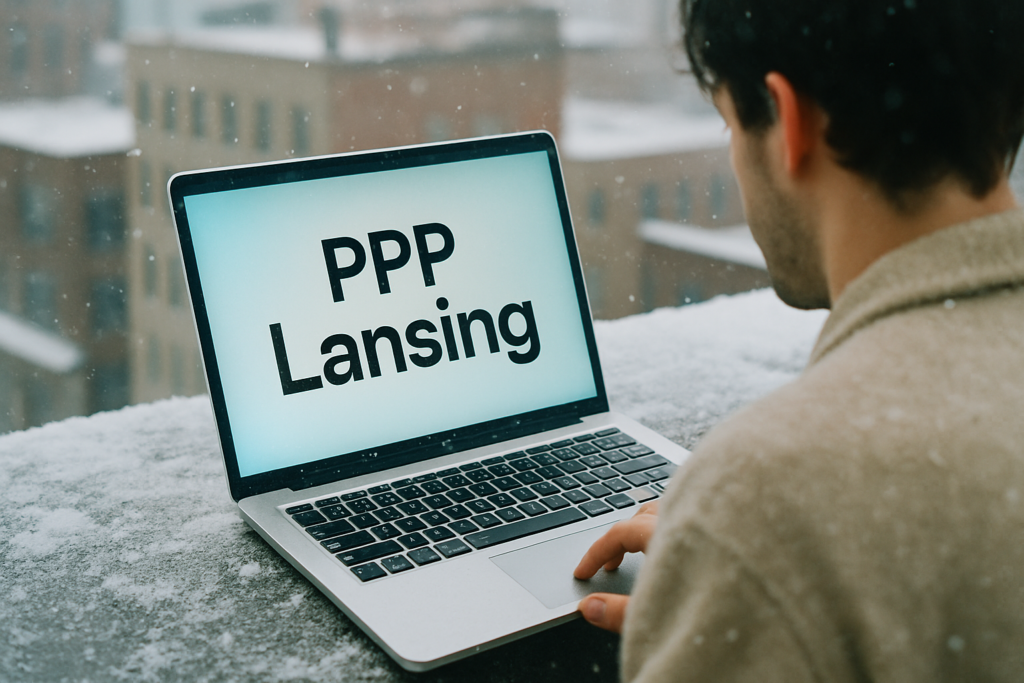Navigating the aftermath of the COVID-19 pandemic has been a challenging journey for many cities across the globe, and Lansing is no exception. As I delve into the impact of COVID-19 on Lansing’s economic landscape, it’s evident that the city has faced unprecedented disruptions and transformations. From small businesses struggling to stay afloat to shifts in consumer behavior, the ripple effects of the pandemic have been profound.
In this article, I’ll explore how key sectors in Lansing, such as tourism, manufacturing, and services, have been affected by the pandemic. By analyzing the data and trends, I aim to provide insights into the resilience of Lansing’s economy and the strategies employed to mitigate the economic downturn. Join me as we uncover the challenges, adaptations, and potential opportunities that have emerged in Lansing’s economic landscape in the wake of COVID-19.
Overview of Lansing’s Economy Pre-COVID-19
Lansing’s economy pre-COVID-19 showcased a diverse landscape driven by key industries and notable employers. Understanding the foundation of the city’s economic structure is crucial for assessing the impact of the pandemic on its financial stability and growth prospects.
Key Industries and Employers
In pre-COVID-19 Lansing, the automotive sector stood as a prominent industry, with major players like General Motors and Ford contributing significantly to the local economy. Additionally, the healthcare industry flourished, with institutions like Sparrow Health System and McLaren Greater Lansing serving as pillars of employment and economic activity. The presence of Michigan State University also played a vital role in shaping Lansing’s economy, fostering innovation and research in various fields.
Economic Growth Trends
Before the COVID-19 outbreak, Lansing exhibited steady economic growth across multiple sectors. The city’s real estate market was on an upward trajectory, reflecting increased investments and development projects. Job creation was robust, supported by a mix of manufacturing, technology, and service-oriented industries. Moreover, small businesses thrived, adding vibrancy to the local economy and enhancing community engagement. These positive growth trends laid a solid foundation for Lansing’s economic resilience in the face of unforeseen challenges.
Impact of COVID-19 on Small Businesses
Small businesses in Lansing have faced significant challenges due to the impact of COVID-19. The closure and survival rates, as well as the adaptation and innovation strategies adopted by these businesses, play a crucial role in understanding the resilience of the local economy in the face of adversity.
- Closure and Survival Rates
Small businesses in Lansing have encountered varying closure and survival rates during the COVID-19 pandemic. While some businesses have unfortunately had to shut down permanently due to financial strains and reduced demand, there have also been success stories of businesses adapting quickly to the changing landscape, implementing strategies to survive the unprecedented challenges posed by the pandemic.
- Adaptation and Innovation Strategies
Amid the disruptions caused by COVID-19, small businesses in Lansing have demonstrated remarkable resilience by swiftly adapting and innovating their operations. Many businesses embraced digital transformation, shifting to e-commerce platforms and online services to reach customers amidst restrictions on in-person interactions. Additionally, businesses implemented safety measures, such as contactless delivery and enhanced sanitization protocols, to ensure the well-being of their customers and employees while maintaining operational continuity. By leveraging technology and creativity, small businesses in Lansing have shown agility and determination in navigating the challenges posed by the pandemic and emerging stronger in a post-COVID economic landscape.
Job Market and Unemployment Rates
I’ll delve into the impact of the pandemic on Lansing’s job market and its resulting unemployment rates, shedding light on the changes in employment sectors and the subsequent recovery measures and job creation efforts post-COVID-19.
Changes in Employment Sectors
Analyzing the employment landscape post-COVID-19 reveals significant shifts in Lansing’s traditional job sectors. Industries heavily reliant on in-person interactions, such as hospitality and retail, experienced substantial downturns due to restrictions and changing consumer behaviors. Conversely, sectors like remote work-friendly technology and e-commerce saw a surge in demand, leading to job growth in these areas. This restructuring of employment sectors highlights the adaptability of the local economy amidst challenging circumstances.
Recovery Measures and Job Creation
In response to the economic setbacks caused by the pandemic, Lansing has implemented various recovery measures to stimulate job creation and bolster the workforce. Initiatives such as workforce training programs, incentivizing businesses to hire local talent, and funding support for small enterprises have been pivotal in facilitating economic recovery. Moreover, investments in infrastructure projects and green technology initiatives have not only created job opportunities but also contributed to the sustainable development of the region, fostering long-term economic stability and growth.
Real Estate and Housing Market Adjustments
Exploring the effects of COVID-19 on Lansing’s real estate and housing market reveals significant adjustments in commercial property dynamics and residential market trends.
Commercial Property Dynamics
In response to the pandemic, the commercial property landscape in Lansing experienced notable shifts. Office spaces witnessed reduced demand as remote work became more prevalent, leading to a restructuring of lease agreements and a dip in rental prices. Retail properties faced challenges due to temporary closures and changes in consumer behavior, prompting landlords to explore alternative usage options or adapt spaces to meet evolving needs. Industrial real estate, on the other hand, saw increased demand driven by the growth of e-commerce and logistics sectors, leading to a rise in warehouse and distribution center development.
Residential Market Trends
The residential market in Lansing also underwent changes in the wake of COVID-19. As people spent more time at home, there was a surge in demand for larger living spaces, home offices, and properties with outdoor amenities. Suburban areas experienced heightened interest as buyers sought properties away from densely populated urban centers. Additionally, low mortgage rates incentivized home purchases, boosting the real estate market despite economic uncertainties. The shift towards remote work and lifestyle preferences influenced housing choices, with a notable increase in digital home viewings and virtual tours becoming standard practices in the industry.
Government Interventions and Policy Responses
I’ll delve into the government interventions and policy responses that have affected Lansing’s economic landscape during the COVID-19 pandemic.
Financial Aid and Support Programs
During the pandemic, the government implemented various financial aid and support programs to assist businesses in Lansing. These initiatives aimed to alleviate the economic strain caused by the crisis. For instance, small businesses could access grants and loans to sustain their operations and retain employees. Additionally, there were programs offering tax relief and incentives to foster recovery and stimulate growth in the local economy.
Long-Term Economic Plans
Government entities in Lansing have been formulating long-term economic plans to rebuild and strengthen the city’s economy post-COVID-19. These strategic initiatives focus on enhancing key sectors, such as technology and green industries, diversifying the economic landscape, and attracting new investments. By implementing sustainable policies and fostering a business-friendly environment, Lansing aims to ensure resilience against future crises and foster sustained economic growth.

 Erickann Rosadoppi, founder of Your Local Insight Journal, created the platform to keep Lansing, MI residents informed and connected. Her focus on local news, business spotlights, and economic growth has made the site a vital community resource.
Erickann Rosadoppi, founder of Your Local Insight Journal, created the platform to keep Lansing, MI residents informed and connected. Her focus on local news, business spotlights, and economic growth has made the site a vital community resource.
